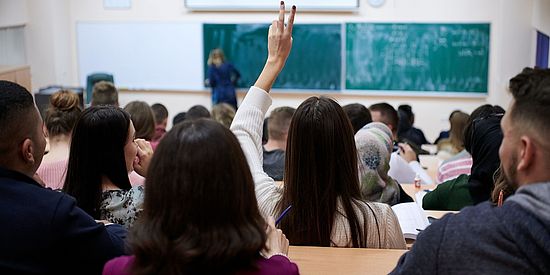
Kurse
TUCS and MACS
The two courses, “Understanding Changing Societies” and “Analyzing Changing Societies,” provide an overview of different processes, forms, causes and consequences of changing societies, and deepen several aspects from different disciplinary perspectives. While “Understanding Changing Societies” focuses on theory and discourse, “Analyzing Changing Societies” focuses on methodology, methods, cases, and applied research.
As the courses build on each other, students are encouraged to take both courses in the same semester.
Societies are subject to constant change, which takes place across scales and in relation to the movement of people, ways of knowing, practices, concepts, technologies and objects. They shape and are shaped by the fundamental values and norms of societies, the identities and self-understandings of social actors, the relationship and interaction between individuals and collectives, forms of social conflict, governmental strategies and tactical approaches, practices of regulating collective affairs, among other concepts and processes. The nature of such changes can range from the personal, individual level to the level of organizations and networks, that is, large aggregated, social structures such as the state or global markets. Social changes can take the form of disruptive turnarounds, immediate transitions and continuous transformative change. They have numerous exogenous and endogenous causes, interdependent with environmental conditions and technological developments, and the culturally specific interpretations thereof. Finally, societal changes have a variety of consequences and drive or dampen other processes of change from efforts of targeted reflexive design to everyday practices of resilience and contest with a focus on inclusive, sustainable forms of change.
The overall aim of the two courses is to create a common ground for students of the MA program Changing Societies. This basis should serve students to develop various theoretical perspectives on the study of different phenomena of societal change across time and space, To this end, the courses offer an introduction into key topics in these processes, as well as theories of “Changing Societies” from different inter/trans/disciplinary perspectives.
Colloquium
This colloquium is meant for students of the Changing Societies master's degree program, who are in the process of designing or writing their master’s thesis, or writing a seminar paper. They are invited to share their work in a collective setting, receive feedback from the Teaching Team and provide peer feedback.
Students at different stages of developing a master’s thesis or seminar paper are welcome: from students who want to share their first ideas, to students who have developed initial research designs, to those who already want to discuss first analysis results. In the mindset of working together and learning from each other, theoretical, methodological, and empirical questions regarding the individual research design, but also practical aspects like time management and the writing process can be addressed. There will also be space to talk about the fascinating as well as possibly frustrating moments in the research process and related coping strategies.
The course includes an information session about the oral exams.
One session on Current practice in changing societies will be dedicated to exchange with invited practitioners on how they engage with the challenges of changing societies in their work. Also, students not participating in the colloquium are welcome to join this particular session.
Quick Links
Social Media
